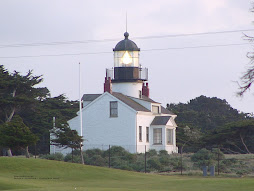The single word "FIRE" is among the most dreaded words on earth. On land, the "fight or flight" phenomenon gives you the option to flee. On the water, however, you cannot simply run away from fire. You must deal with it, fight it, overwhelm it and defeat it immediately. Otherwise, the result will be tragic.
The key to reducing the likelihood of fire is prevention. Believe me, the greatest effort at prevention is well worth the time and expense, when measured against the effects of a fire. So, how do you start preventing fire on your boat? The following list may be helpful:
1. Start with good housekeeping. Get rid of combustible clutter. Properly discard old paints, thinners, polishes and other flammable or combustible items. (Most communities have a household hazardous materials day, where you can discard your hazmats for free, up to a certain quantity. Contact your city offices or fire department for details.)
2. Check your electrical wiring, both 12 volt and 110 volt. Be sure the power is off when checking shore power connections, etc. An electrical tester, designed to show polarity and ground integrity, is a good investment. Be sure wiring is of adequate size for the load. Check cords regularly to spot fraying or deterioration. Be sure all circuits are equipped with circuit breakers or fuses of the proper amperage. Don't over fuse.
3. Check all heat producing appliances for proper clearance to combustibles. This includes light bulbs, which can generate sufficient heat to ignite bedding, paper, and wood.
4. Check your fire extinguishing system. Halon, FE-200, FE-25 and carbon dioxide systems, installed in machinery spaces, provide an excellent first line of defense should a fire erupt. But, they must receive regular service to assure proper operation. Consult your owners' manual, and contact a fire protection service company for assistance if needed.
5. Check your hand portable fire extinguishers. Are they fully charged, sealed and tagged with a current service date? Are they the right extinguisher for the type fire you are likely to encounter, and USCG Approved for Marine Use? And, are they mounted where they are readily available in event of need?
6. Fuel carefully. Check all hoses and clamps regularly. Run your blowers for five minutes after fueling. Stick your head in the bilge and sniff for fumes before starting the engines. Use only listed containers and portable fuel tanks for outboard fuel, and always store them above decks.
7. Be sure your carburetor flame arrestor is clean, in good condition and secured properly. Never start or operate your engine without the flame arrestor in place.
And, if after all your precautions, a fire does start, keep your cool. If it's in the engine room, and you have automatic extinguishing equipment, give the system time to put out the fire. Leave hatches closed after the system actuates, and wait the recommended period of time before opening. Have a backup extinguisher ready. If you need to fight the fire with a portable extinguisher, sweep the extinguisher discharge from side to side at the base of the flames, until the fire is out. Keep a watch for rekindling or flare up. If possible, immediately call the Coast Guard and report your situation. This is no time to second guess the fire. Better to have the Coast Guard on the way and not need them, than the other way around.
Safe Boating.
Top 60 Boating Tips by Boating Magazine
Tuesday, August 19, 2008
Subscribe to:
Post Comments (Atom)









No comments:
Post a Comment